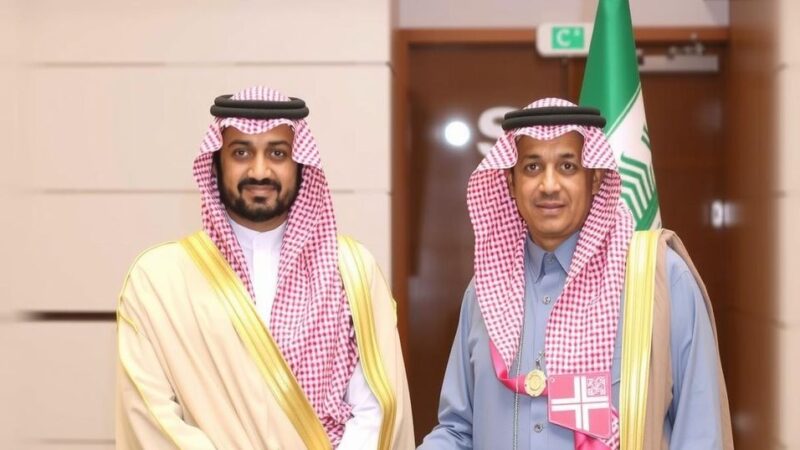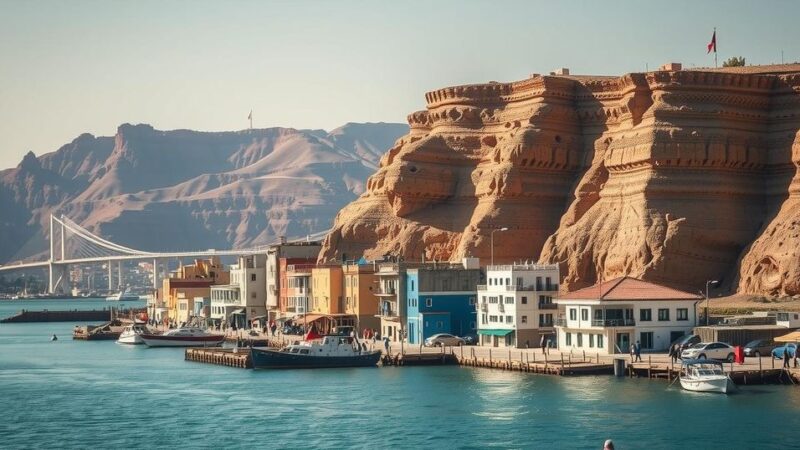Iran has lifted bans on WhatsApp and Google Play, signaling a potential move towards broader internet access. This aligns with government pledges for enhanced connectivity. Experts view this as a pivotal step, despite strong parliamentary opposition and ongoing internet restrictions. Future phases may introduce access to additional platforms, indicating a shift in policy amidst calls for comprehensive reform.
On Tuesday, Iran’s Supreme Council of Cyberspace announced the lifting of restrictions on WhatsApp and Google Play. This decision is viewed as a significant step towards broader internet access, reflecting a commitment expressed by the country’s current government to facilitate greater connectivity to global online platforms. Former Foreign Minister Javad Zarif highlighted the perspective of prominent politician Masoud Pezeshkian, who believes that internet filtering contradicts the dignity of the Iranian people.
Experts, including Ali Sharifi Zarchi, assistant professor at Sharif University of Technology, regard this decision as beneficial, suggesting it could lead to further unblocking of foreign resources. Iranian families have faced challenges and expenses due to reliance on virtual private networks (VPNs), which have flourished financially amid internet restrictions.
Despite the unblocking of WhatsApp and Google Play, many other international platforms remain subject to limitations. Analysts interpret this development as a tentative shift towards less restrictive internet policy, which could bolster Iran’s engagement in the global digital economy. Future phases include potential access to YouTube and negotiations regarding Telegram, contingent upon meeting specific governance requirements.
However, pushback has emerged from within parliament, where numerous lawmakers have openly opposed easing internet restrictions, viewing the relaxation as a concession to perceived adversaries. A recent poll indicated Telegram’s popularity among Iranians, despite its filtering, with 45% of respondents favoring it amidst various social media options. This dichotomy reflects a critical debate surrounding internet freedom in Iran, with some citizens advocating for an immediate overhaul of the restrictive system.
Proponents of the easing restrictions cite ongoing negotiations for faster internet access and gradual lifting of filters, with a timeline aiming for completion by the Iranian New Year in March 2025. Discussions regarding high-speed, unfiltered internet in designated zones signal potential change in Iran’s digital landscape.
Overall, while the removal of restrictions is a positive step, numerous challenges persist, and comprehensive reform remains necessary to ensure unfettered digital access for all Iranian citizens.
Iran has a long history of stringent internet controls that commenced in the early 2000s, affecting prominent social media services such as Facebook, Twitter, and Telegram. The filtering system, seen as a means to control information and guard against dissent, has resulted in widespread use of VPNs, creating a parallel internet economy. The recent announcement to lift restrictions on selected platforms indicates a potential shift in Iranian internet policy, aligning with efforts to enhance connectivity and facilitate access to global markets. However, internal disagreements within the government regarding internet governance complicate this transition.
In summary, the Iranian government’s decision to lift restrictions on WhatsApp and Google Play marks a notable advancement towards greater internet freedom. While this is a positive initial step, extensive efforts are still needed to ensure comprehensive access to various digital platforms. Continued debates within parliament and differing views on internet filtering highlight the complexities of reforming Iran’s internet landscape, while plans for future phases reflect hopeful progress toward enhancing connectivity and supporting the digital economy.
Original Source: www.intellinews.com







